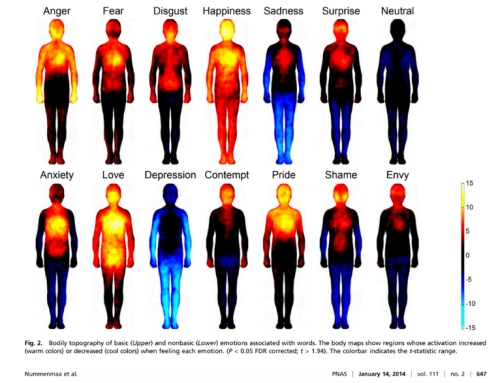How feelings influence your choices
In our previous blog, we explored how emotions function as data – helping us make sense of what is happening in and around us. We also looked at how emotions show up in the body and how simply noticing those sensations can offer insight.
Now, we turn our attention to the brain and the role it plays in shaping our emotional experiences. The more we understand how emotions work, the better equipped we are to respond with clarity and intention.
The human brain is a complex system with approximately 86 billion neurons.
The first is the limbic system, the part of the brain responsible for processing emotions quickly and automatically. It reacts to perceived threats or changes before we have had a chance to consciously think. This is why we may feel a surge of emotion in response to a sudden noise, a critical email, or an unexpected disruption to our plans.
The second is the prefrontal cortex, which plays a key role in reasoning, decision-making, and emotional regulation. When this part of the brain is active, we are more likely to pause, reflect, and choose a response that aligns with our values and goals – rather than reacting impulsively.
Naming emotions changes the brain
There is strong evidence that naming emotions – quite literally putting words to what we feel – helps regulate the emotional experience. This process activates a part of the brain called the right ventrolateral pre-frontal cortex, that acts as a seesaw effect on the amygdala, that helps calms our response. How cool is that?
Saying to yourself, “I feel anxious” or “I feel disappointed” creates a pause. It slows things down and helps the thinking brain take the lead.
This is one of the most accessible Emotional Intelligence tools available. It does not require a technique, just a moment of awareness and a willingness to name what is present.
The six universal emotions
While everyone has unique emotional experiences, there are six emotions that are recognised across cultures and ages. Each one serves a purpose and is linked to a specific trigger. These emotions are not random. They help us survive, relate, and respond. Fear keeps us safe. Happiness helps us bond. Anger motivates us to remove blocks, or protect boundaries. Each emotion is trying to tell us something.
Emotion
Happy
Trigger
Gaining something of value or connection
Emotion
Sadness
Trigger
Loss of something of value
Emotion
Fear
Trigger
A physical or psychological threat
Emotion
Anger
Trigger
Feeling blocked or that something is getting in the way
Emotion
Disgust
Trigger
A sense that something is offensive or violation of personal values
Emotion
Surprise
Trigger
Something unexpected has occurred
Same emotion, different story
While these six emotions are universal, the reasons we experience them are deeply personal. One person may feel sadness from losing a job; another may feel it from losing a sense of routine. Both are valid.
What we value, how we were raised, and what we believe all shape how we experience emotions. This is why Emotional Intelligence is not about fixing or judging feelings – it is about recognising them with curiosity and compassion.
The more we understand how emotions work in the brain and body, the more choices we have in how we respond. Emotions will always arise. What matters is how we meet them.
With awareness, language, and a little curiosity, emotions become something we can work with and enjoy.
Explore the tools that help us understand emotion
Building emotional vocabulary takes time, and the right tools can make it easier. The Emotions Cards are a simple and practical way to explore and name how you feel. With over 150 emotion words, they can support reflection, journaling, coaching, or team conversations.
If you are interested in a deeper understanding of how you perceive, express, and manage emotions, the MSCEIT Emotional Intelligence Assessment offers a research-based way to explore your emotional intelligence, along with a personalised debrief to help you apply it in daily life.
In our next blog, we will explore how to navigate more challenging emotions and how to expand the ones that lift us up.
Explore how our science-backed courses and tools can support you or your team to flourish. Whether you’re starting your journey or deepening your expertise,
Langley Group is here to help you thrive.
👉 Discover our upcoming programmes
📩 Subscribe to our newsletter for practical tips and the latest research
🔗 Contact us to talk about what’s possible for you or your organisation
Let’s create positive change – together.









